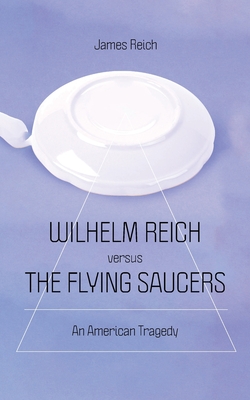The convenient myth of Wilhelm Reich is that he "lost his mind" in the early 1950s, if not before, and that the last seven years of his life and work - the orgone and radiation experiments, the cloudbuster, and flying saucer intrigues - present an embarrassment. Even the counterculture that embraced Reich, not least William S. Burroughs, Norman Mailer, and filmmaker Dusan Makavejev, tended to distort his theory. The psychosis attached to Reich by his detractors was the culmination of decades of scapegoating by psychoanalysts, Nazis, communists, and conservatives. But Reich's environmental and Cold War preoccupations and his slow-burning fascination with UFO phenomena were not signs of a madness incipient since his break with Sigmund Freud. They anticipated and reflected much in the American psyche. Defining the presence of a "cinematic self" in the misunderstood analyst once considered an heir to Freud, Wilhelm Reich versus the Flying Saucers rejects orthodox portrayals of Reich's final years as merely pathological. Combining original analysis and evidence from the Wilhelm Reich Archive, James Reich uncovers the fatal moments in the psychologist's uncanny identification with the "spaceman," and the myth of a scientist lost to his own grandiosity and paranoia. Taking seriously the influence of The Day the Earth Stood Still, Bad Day at Black Rock, and other pop cultural narratives on Reich, this "psychoanalytic detective story" concerns existential traps, conscious and unconscious collaborations and betrayals by disciples, and unidentified flying object-relations. Reich's is an atomic-age passion narrative. Vitally, Reich's story could be ours. The author is not related to his subject. James Reich is a novelist, essayist, and journalist. He is the author of The Moth for the Star (7.13 Books, 2023), The Song My Enemies Sing (Anti-Oedipus, 2018), Soft Invasions (Anti-Oedipus, 2017), Mistah Kurtz! A Prelude to Heart of Darkness (Anti-Oedipus, 2016), I, Judas (Soft Skull, 2011), and Bombshell (Soft Skull, 2013). His account of innovations in British science fiction is published by Bloomsbury in its "Decades" series, The 1960s. His nonfiction has also appeared in Salon, SPIN Magazine, The Huffington Post, International Times, and other literary and cultural publications. Reich was born in Stroud, Gloucestershire in the West of England, and has been a resident of Santa Fe, New Mexico since 2009. He was greatly influenced by early exposure to the poetry of Dylan Th











